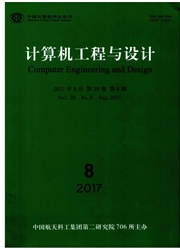

 中文摘要:
中文摘要:
车载自组织网络中存在不愿意参与转发的自私节点,提出一种自私路由协议SCR,当节点进行路由决策时,需要同时考虑下一跳节点的社会贡献及其到目的节点的递交概率。社会贡献作为一种激励机制增强自私节点的转发意愿,社会贡献越高,获得的网络服务就越多;递交概率与节点的社会联系相关,社会联系越强,递交概率越高。具有较高递交概率和较低社会贡献的节点成为转发节点的可能性更高。仿真结果表明,SCR协议比其它基于社会的路由协议具有更好的性能。
 英文摘要:
英文摘要:
Considering selfish behaviors of some nodes in vehicular Ad Hoc network, a social contribution based routing protocol was proposed,which considered both the social contribution and the delivery probability of the relay node when making routing decision. Social contribution was used as the incentive to stimulate selfish nodes to be more willing to relay the packets. Higher social contribution meant more service could be got. Delivery probability was determined by the social relations. The stronger the social relations were, the higher the delivery probability was. The node with lower social contribution and higher delivery probability was the preferred candidate for the next hop. Simulation results show the social contribution based protocol achieves better performance than other social routing protocols.
 同期刊论文项目
同期刊论文项目
 同项目期刊论文
同项目期刊论文
 期刊信息
期刊信息
